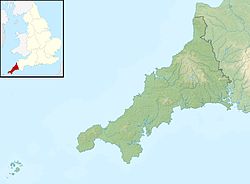| Port Isaac Lifeboat Station | |
|---|---|
 | |
| General information | |
| Type | Lifeboat station |
| Location | Port Isaac |
| Address | The Slipway Hotel Garage, Port Isaac, Cornwall, PL29 3RL |
| Country | United Kingdom |
| Coordinates | 50°35′32″N4°49′53″W / 50.59220°N 4.83139°W |
| Opened | 1927 |
| Owner | Royal National Lifeboat Institution |
| Website | |
| rnli | |
Port Isaac Lifeboat Station is the base for Royal National Lifeboat Institution (RNLI) inshore lifeboat operations at Port Isaac in Cornwall, United Kingdom. It operates a D-class (IB1) lifeboat, which since 2019 has been the Pride of Port Isaac (Goeth Porthusek).
